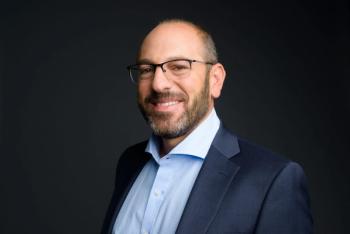
- June 2022
- Volume 40
- Issue 6
- Pages: 274
Mentorship in the Time of Covid-19: Finding the Silver Lining
Having to handle mentorship remotely during the pandemic created challenges but also spurred us to think creatively.
An undeniable effect of the Covid-19 pandemic is that we have learned how to adapt (quickly) to sudden changes. The educational services sector, in particular, had to develop new learning strategies that could replace in-person learning. Instructors also faced the challenge of having to suddenly teach and assess students’ learning in ways that were not the norm.
Mentorship has also drastically changed. Because of social distancing, the in-person mentoring experience was abruptly interrupted, and many mentees suddenly had to adapt to interacting with mentors through a screen and a microphone. The informal drop-in time and occasional chats in the laboratory have also been sorely missed by both mentors and students, and often online meetings bring a detrimental sense of formality to the mentoring relationships because all meetings need to be on a “schedule.” Even when in-person meetings are possible, mask wearing has made it much harder to read people’s emotions and to anticipate if there is stress, anxiety, nervousness, confusion, frustration, and so on, or later assess the level of each mentee’s enthusiasm and motivation.
However, learning how to communicate through online meetings has also allowed us to explore new mentorship opportunities we hadn’t thought of before, and it has made networking with people in different places and across time zones even easier.
One example is ACS Project SEED (1). This fantastic program provides mentorship for economically disadvantaged high-school students by enhancing their research experience and facilitating their entry to higher education in science, technology, engineering, and math (STEM) fields. Before Covid-19, the program was exclusively in-person. Now, virtual projects are also available for students that are not situated in proximity to a Project SEED site!
In addition, other existing programs that enabled remote learning and support for an enhanced mentorship experience have expanded their reach. This expansion has allowed so many mentors to engage their mentees during the difficult times of remote learning. One such program, at The University of Toledo (my academic home), is called “Scientists Changing Our Pre-College Education” (S.C.O.P.E) (2). This program provides high-school teachers with resources that enhance the quality of the STEM educational curricula and exposes students to various scientific methods with a hands-on approach. The program has enabled students not only to gain a unique remote learning experience but also to gain access to advanced instrumentation such as scanning electron microscopes, confocal fluorescent light microscopes, and gas chromatography–mass spectrometry (LC–MS) instruments. Initially, the program was local, but it has since expanded to 15 U.S. states. Best of all, the program is absolutely free to any high school wishing to participate.
In addition to the educational mentoring strategies described above, the scientific community has also found interesting ways to get together despite conference cancellations. New enthusiastic groups were formed that have provided online events to mitigate the feeling of isolation that many inevitably have had to embrace. For example, Females in Mass Spectrometry (FeMS) has done a spectacular job in forming a community that brings scientists together with engaging online events and mentorship programs. FeMS has really made a difference for so many scientists not all around the world.
Furthermore, our ACS Analytical Subdivision for Chromatography and Separation Chemistry (ACS SCSC) is developing other opportunities for junior chromatographers and separation chemists, including:
- Career transition talks, where separation chemistry students can have an opportunity to get noticed by potential employers in industry and academia.
- Virtual poster presentations by students.
- Virtual discussions with journal editors for tips on successful manuscript submissions.
- Virtual discussions on the role of separations chemists in industry and engagement with industrial leaders to explore job opportunities for separation chemists.
More information about these events will be announced on the ACS SCSC website, our LinkedIn page and on Twitter (@AcsScsc).
References
(1) ACS Project SEED Program,
(2) Scientists Changing Our Pre-College Education (S.C.O.P.E),
Articles in this issue
Newsletter
Join the global community of analytical scientists who trust LCGC for insights on the latest techniques, trends, and expert solutions in chromatography.




